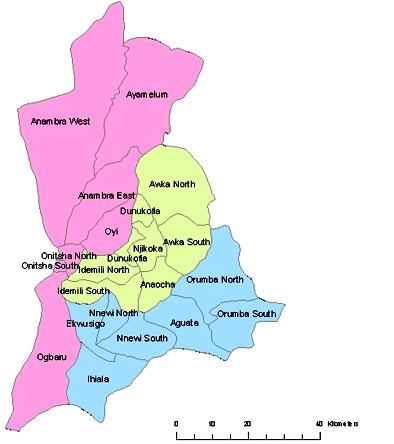
Anambra is an eastern state in Nigeria bordered by
Asaba- delta state, orlu in Imo, while aguleri shared boundary with kogi state,
farther east is orji river Enugu boundary.
The state is the economic capital
of the people of rising sun, with biggest motocycle market in Nnewi, while
Onitsha, a whole city is a trading centre segregated into various markets
ranging from building materials, bakery items, clothing, food stuff etc.
The state also have a good share
of the river Niger.
The people of Anambra are predominantly
traders and craftsmen.
These people are religious as big
cathedrals of the dominant sect (Anglican and Catholic) adore all corners of
the state.
The degree of their christain
faith can be seen in Pope visit to this state anytime a pope visits the country.
This is a state where every family aspire to have a son or daughter as
Rev.father or Sister.
My stay in this state for 2years
and subsequent visits keeps me wondering with the level of the exposure and
religious understanding, these people are core traditionalist who still uphold
their African values.
Let's look at marriage, no matter
your rank in the church, the Rev.father will never conduct a white wedding for
you if you didn't do “ugbawku” (traditional wedding)
The new yam festival is still sacred
as you cannot eat a fresh yam without traditional pronouncement.
The “igwe” festival (ofala) is
usually a political/ religious gathering where you see all knights gathering to
celebrate.
The most shocking of these rising
sun is the pre-colonial traditions of scared animals and reptiles. In “Arrow of
God”, Chinua Achebe brought this tradition into lime light. After several
decades of modernization, these traditions are highly upheld and respected. The
Nnewi, Uli, and Ihiala axis must never kill a python while in Awka, the state
capital’s monkeys are revered gods which must never be domesticated or killed.
monkeys can be seen moving about freely in Awka
No matter how civilised or
cultured an Anambra man is, he will never throw away the ways of his
forefathers.
Author: Osiyemi AbdulRazaq Ayodele

No comments:
Post a Comment